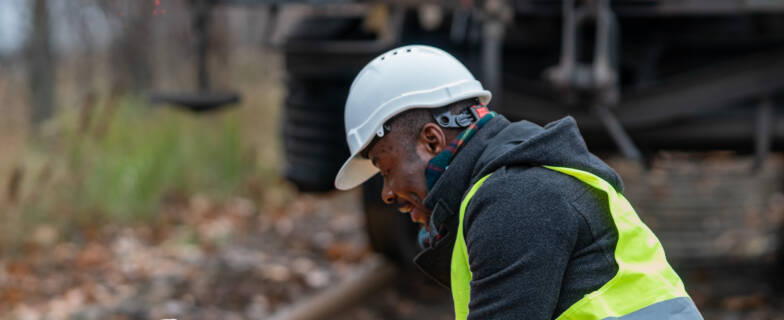If a contractor caused my injuries, am I protected under the FELA?
In our last newsletter, we discussed how the Federal Employers’ Liability Act (“the FELA”) protects injured railroad workers and allows them to recover money damages after experiencing an on-duty injury, so long as the railroad was at fault (negligent) in causing that injury. But what if a railroad worker’s injuries are caused a railroad contractor?
Today, railroads are hiring an increasing number of contractors to undertake work that was previously performed by individuals actually employed by the railroad. For example, railroads now commonly hire transport van/taxi companies to shuttle railroad employees to and from work from railroad terminals or company-arranged lodging, which is another contractor. These transporters and hotels are considered contractors of the railroad. Many workers incorrectly think the railroad is not responsible for injuries that happen at these hotels or during van transport. Fortunately, this is not the case. The protection afforded by the FELA does indeed cover such injuries because the contractors are considered “agents” of the railroad. If the contractor fails to provide a safe environment, both the contractor and the railroad can be held responsible.
For instance, if a railroad employee is being transported by a cab company that the railroad hired, and the cab driver goes through a red light and causes a collision and injuries to the railroad employee passengers, then they have a claim against the railroad under the FELA and a claim against the cab company for negligence. Even though the cab driver was the primary cause of the injury, the railroad has a responsibility to provide a safe workplace to its employees, and that extends to cab rides performed by contractors. Not only can the railroad be held responsible for failing to provide a safe workplace, it can also be liable for failing to hire a safe driver. Railroads typically hire low cost contractors who sometimes fail to invest in safety. As a result, many transport companies hire drivers that are not appropriately trained and lack professional driving experience.
It is worth noting that railroads typically have an agreement with contractors (called an indemnification agreement) that requires the contractor to carry liability insurance and to reimburse the railroad for any liability costs.
It should also be noted that the railroad will not be responsible simply because you were injured while riding as a passenger in a transport vehicle, IF the incident was caused by another motorist, such as someone who drives drunk and crashes into the transport van. And, like injuries sustained while working on railroad property, you must still prove that your damages were caused by the unsafe conditions. Those damages can include wage loss, medical bills, disability and disfigurement.
Claims involving railroad contractors can be difficult to navigate alone. These companies have a team of claim agents and lawyers who are contacted immediately after a reported injury incident and will have a head start investigating your case and protecting their assets. The law firm of Schlichter Bogard & Denton has successfully tried and also settled out of court many cases involving injuries caused a contractor’s negligence. If you have any questions, contact one of our team members, and we will be happy to speak with you.
Article by Scott Gershenson, Counsel
In our Railroad Injury e-newsletter exclusively covering railroad-related topics, attorneys from Schlichter Bogard & Denton’s nationally recognized team discuss, among other things, railroad workers’ rights, federal railroad laws, recent rulings impacting railroad workers, and firm news. Click here to subscribe.
The information contained in this newsletter is provided for informational purposes only and does not constitute legal advice. Reading this newsletter and information contained herein does not constitute formation of an attorney-client relationship. Every potential case must be assessed in accordance with its unique facts and circumstances. If you believe you may have a legal claim, please request a free, confidential case evaluation with our team today.
